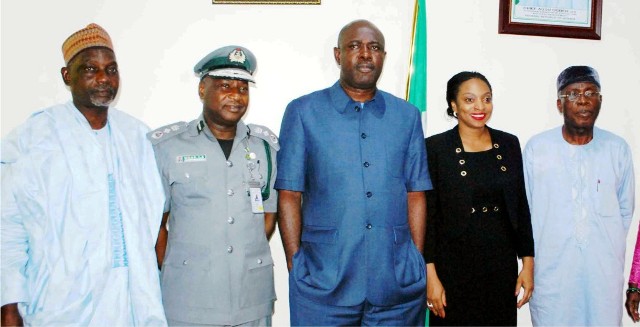Business
S’Africa, Nigeria’s Trade Nose Dives To N1.3trn

South African Ambassador to Nigeria, Mr Lulu Aaron-Mnguni, says trade volume between the two countries has dropped to about N1.3 trillion (55 billion Rand) in 2016.
The trade volume decreased by 11.29 per cent from N1.5 trillion (62 billion Rand) in 2015.
Aaron- Mnguni told newsmen in Abuja yesterday that bilateral relations between the two countries were excellent but could be improved upon.
The trade between the two countries increased steadily from N488 billion (20.6 billion Rand) in 2010 to N1.5 trillion (62 billion Rand) in 2015.
He said that the gradual movement was attributed to Nigeria’s demand for automotive parts, South Africa’s export cars, vehicles, structures and parts of structure, uncoated paper and paperboard.‘
“The volume of trade is 55 billion Rands; that is what I can say now. It is growing, of course there are challenges at this moment but it is growing and we want it to grow more.
“That is why we are working together in the field of diversification of the economy; we currently have South Africans that are working in some parts of Nigeria like in Jos and Kaduna.
“We are trying to make sure that we help in the field of mines and steel, of course we work together in the field of energy.
“We are learning from Nigeria in the field of oil and gas, we want to learn because in the future we will want to be experts in that area,” he said
The envoy said that the relationship between the two countries was encouraging, adding that there was nothing negative about Nigeria in South Africa.
Aaron- Mnguni said that the two countries needed to work together to leverage on their advantages in the continent.
According to him, there is need to address the issue of poverty in both countries so that desperation among the people which ends up in mistrust and suspicion can be removed.
“Nigerians are very good in business and this is the area we need to work together and that is what can help us, so that South Africa can learn more about doing business.
“It is through this working together that people can learn that they are one people. There are lots that we can do together for the sake of our people,” he said.
He, therefore, called on Nigeria to lend a helping hand in developing SMEs Sector of the South Africa.
Transport
Automated Points Concession : FAAN Workers Gave 72hrs To Revise Decisions In PH

Transport
FAAN Announces Pick-Up Points for Go-Cashless Cards

Business
Fidelity Bank To Empower Women With Sustainable Entrepreneurship Skills, HAP2.0
-
Politics3 days ago
2027: NIGERIANS FAULT INEC ON DIGITAL MEMBERSHIP REGISTER DIRECTIVE
-

 Environment3 days ago
Environment3 days agoLAWMA Director Says Sweeping Reforms Have Improved Waste Collection
-
Politics3 days ago
LP Crisis: Ex-NWC Member Dumps Dumps Abure Faction
-

 Politics3 days ago
Politics3 days agoUmahi Dismisses Allegations On Social Media, Insists On Projects Delivery
-

 Sports3 days ago
Sports3 days agoAbia Not Sure To Secure continental Ticket
-
Sports3 days ago
La Liga: Yamal Records First Career Hat-trick
-

 Sports3 days ago
Sports3 days agoCity Survive Leeds’ Challenge At Elland Road
-
Politics3 days ago
NATASHA ELECTRIC VEHICLES INITIATIVE IN KOGI CENTRAL

